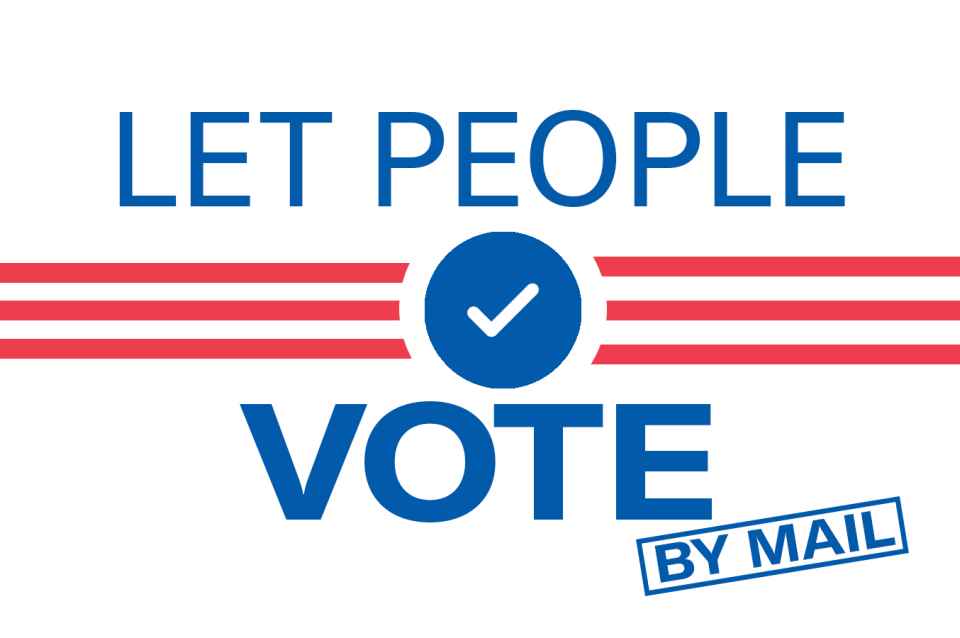ACLU Reaches Agreement in Federal Lawsuit to Remove Virginia Witness Requirement During COVID-19 Pandemic
LYNCHBURG, Va. — Following a lawsuit brought by the American Civil Liberties Union and ACLU of Virginia, the state of Virginia has reached a partial settlement agreement to remove the state’s “witness requirement” for voters whose health would be at risk if forced to comply with the requirement during the COVID-19 pandemic. The agreement pertains to the June 23 primary.
“No one should be forced to choose between their health and their vote. Our legal action prompted state officials to recognize the gravity of making people obtain a witness signature on a ballot in the middle of a pandemic,” said Davin Rosborough, a staff attorney with the ACLU’s Voting Rights Project. “This agreement preserves the right to vote in the June 23 primary for Virginians who cannot risk their health to obtain a witness signature. It is a victory for public safety and for democracy.”
Any voter who submits an absentee ballot by mail must open the envelope containing the ballot in front of another person, fill out the ballot, and then have that other person sign the outside of the ballot envelope before it is mailed back. If approved by the court for voters who believe they cannot safely find a witness, the witness requirement will not be enforced for the upcoming June 23 primary, and the Commissioner of Elections will be required to inform voters about the change and provide updated guidance to local election officials.
As the ACLU wrote in its complaint in this case, the Virginia code does not require a witness signature for an absentee ballot to be counted, but this requirement is imposed by a regulation of the State Board of Elections that can be changed.
“We’re pleased that the Commonwealth will not seek to invalidate absentee ballots submitted in the June 23 primary without witness signatures during this pandemic,” said Eden Heilman, legal director for the ACLU of Virginia. “The Commonwealth must keep the public safe and protect the right to vote. This agreement is a step in that direction.”
The case was filed on behalf of the League of Women Voters of Virginia and several individuals. Over a quarter of Virginians age 18 and over live by themselves, and almost a third of Virginians over 65 years of age — one of the groups most vulnerable to COVID-19 — live alone. And the impact of this requirement will also fall heavily on Virginians with disabilities and black Virginians, who live alone in larger percentages than the population as a whole and who also are experiencing COVID-19 at disproportionate rates.
The partial settlement is pending court approval in a proposed consent decree submitted in the Western District of Virginia.
The lawsuit, League of Women Voters of Virginia v. Virginia State Board of Elections, was filed on April 17. From the League:
“We are thrilled that today’s agreement means voters will not bear the burden of finding a witness for their absentee ballots during a global pandemic,” said Deb Wake, president of the League of Women Voters of Virginia. “We are optimistic the judge will rule favorably so that Virginia voters do not have to choose between their health and their vote.”
“We applaud today’s agreement to protect Virginia voters’ health and uphold their right to vote,” said Chris Carson, president of the board of directors of the League of Women Voters of the United States. “Virginia’s decision today should serve as a blueprint for other states grappling with how to administer elections safely and fairly during this pandemic.”
Proposed consent decree: https://www.aclu.org/legal-document/proposed-partial-consent-judgment-and-decreepdf
Case details: https://www.aclu.org/cases/league-women-voters-virginia-v-virginia-state-board-elections
Stay Informed
Every month, you'll receive regular roundups of the most important civil rights and civil liberties developments. Remember: a well-informed citizenry is the best defense against tyranny.
